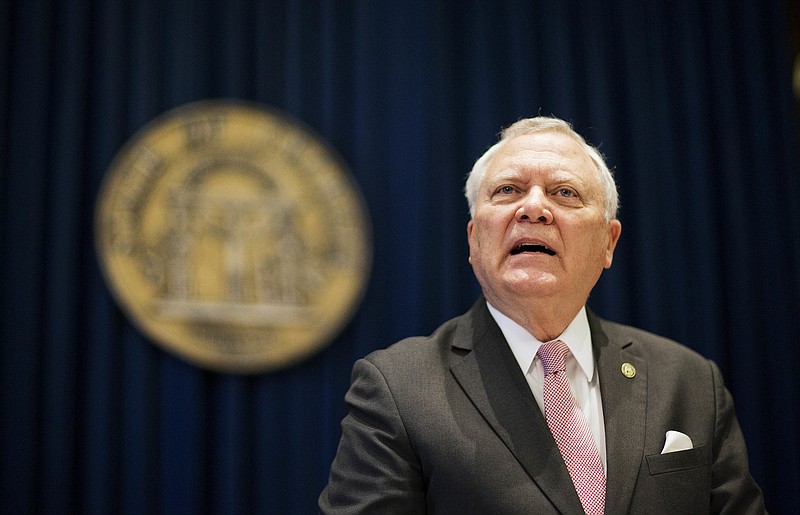ATLANTA - The state would have broad authority to intervene in struggling schools and make significant changes to staff and management under legislation introduced by Georgia Republicans.
Gov. Nathan Deal and other GOP leaders had to regroup after voters in November rejected a proposed constitutional amendment to give the state the power to take over "chronically failing" schools. Education groups fiercely opposed that measure, arguing that it left students and parents subject to the decisions of an official appointed by the governor rather than a locally elected school board.
Rep. Kevin Tanner, a Dawsonville Republican, filed legislation on Friday to create a new position to oversee what he's calling a "turnaround" process.
The "chief turnaround officer" would be accountable to the State Board of Education, whose members are appointed by the governor. Schools selected for intervention would be paired with a "turnaround coach" and other players to come up with an improvement plan.
Tanner said he wants to ensure local involvement to avoid the opposition that Deal's constitutional amendment faced.
"We're basically giving them two years to work hand in hand with us," Tanner said. "And as long as they're making an effort and making progress there won't be any directive that they have to do anything."
The bill does lay out dramatic consequences for schools that don't improve within two years of state intervention. The turnaround officer could replace a school's principal or other staff, require parents be allowed to send their children to other local public schools, or put another school district or nonprofit in charge of running the school.
Outside the "turnaround" process, the bill also would allow the governor to remove members of a local school board if more than half of schools in the district are determined "unacceptable" by the Governor's Office of Student Achievement. The agency considers a school unacceptable if it scores below 60 on the state's index for measuring performance and growth for three consecutive years.
The legislation gives the new official broad discretion to choose schools for state intervention and it doesn't detail how the state will pay for any changes aimed at improving students' performance.
Several education groups said they're concerned about portions of the bill but hope to work with Tanner. Craig Harper, a spokesman for the Professional Association of Georgia Educators, said the group would prefer that the "turnaround officer" report to the elected state superintendent rather than the appointed Board of Education members. The association also would like the bill to include specific requirements on how schools will be chosen for state intervention and whether the state will help pay for putting improvement plans into action.
Angela Palm of the Georgia School Board Association said the organization wants more detail on the state superintendent and Department of Education's role in the proposed process.
Deal's staff said Friday that he supports the bill while a spokesman for state superintendent Richard Woods said he wants to carefully review it before commenting.
Six top Republicans have signed on in support of the measure, including Rep. Brooks Coleman, R-Duluth, who chairs the House Education committee. The panel is expected to discuss the proposal Thursday.
